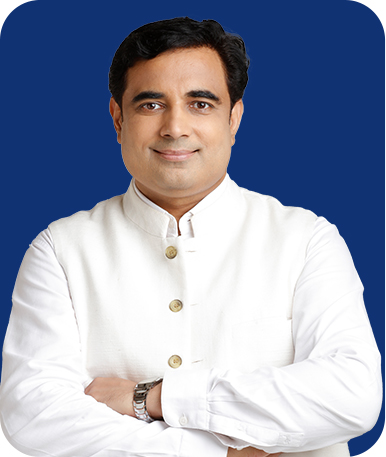
Nirjala Ekadashi, one of the most significant and revered Ekadashi fasts in Hindu tradition, is observed with great devotion and austerity. The term “Nirjala” means “without water,” indicating the strictness of this fast, where devotees abstain from both food and water for a full day and night. Nirjala Ekadashi, also known as Bhima Ekadashi, is celebrated with the intent to attain the blessings of Lord Vishnu and achieve spiritual purity.
The importance of Nirjala Ekadashi extends beyond the act of fasting; it is deeply embedded in the narrative of Bhima, one of the mighty Pandava brothers from the Mahabharata. This blog explores the historical and cultural significance of Nirjala Ekadashi, recounting the tale of Bhima and the lessons of sacrifice and faith it imparts.
In 2024, Nirjala Ekadashi falls on 18 June, providing an opportunity for devotees to partake in this rigorous yet rewarding vrat (fast). This blog will also guide you on how to observe the fast, the rituals involved, and the spiritual benefits associated with it.
The Significance of Nirjala Ekadashi
Ekadashi, the eleventh day of the lunar fortnight, holds a special place in Hinduism. It is a day dedicated to Lord Vishnu, and keeping a fast on this day is believed to cleanse the mind and body, helping devotees attain spiritual growth and merit. There are 24 Ekadashis in a year, each with its unique significance and associated rituals.
What is Nirjala Ekadashi?
Nirjala Ekadashi is considered the most challenging and powerful of all Ekadashis due to its strict fasting rules, where devotees abstain from both food and water. This rigorous fast is observed to gain the benefits of all other Ekadashis combined, making it highly revered among the devout. The spiritual and religious importance of Ekadashi fasting lies in its ability to purify the soul and promote self-discipline.
Nirjala Ekadashi helps devotees control their desires and connect deeply with their spiritual selves. Each Ekadashi is associated with specific benefits, and the nirjala ekadashi benefits are considered manifold due to the intense austerity involved. When is Nirjala Ekadashi in 2024? Nirjala Ekadashi 2024 will be observed on 18 June, and it is marked by special prayers, chanting of hymns, and other religious activities aimed at seeking Lord Vishnu’s blessings.
Nirjala Ekadashi fasts, especially Nirjala Ekadashi, requires understanding the rituals and the spiritual essence behind them. Devotees believe that fasting on this day can help absolve sins, bring prosperity, and ensure a peaceful and harmonious life.
The Story of Bhima and Nirjala Ekadashi
The tale of Nirjala Ekadashi, also known as nirjala ekadashi vrat katha, revolves around Bhima, the second of the Pandava brothers from the epic Mahabharata. Bhima was known for his immense strength and voracious appetite, which made it difficult for him to observe the traditional Ekadashi fasts that involved abstaining from food.
According to the nirjala ekadashi vrat katha, Bhima was troubled by his inability to keep the Ekadashi fasts like his brothers and mother, who were all devout followers of Lord Vishnu and strictly observed these fasts. Feeling guilty and concerned about missing out on the spiritual benefits, Bhima approached Sage Vyasa for guidance.
Sage Vyasa, understanding Bhima’s predicament, suggested a solution that would allow Bhima to gain the benefits of all the Ekadashi fasts without having to observe each one. This solution was the Nirjala Ekadashi. Vyasa explained that by a single day of fasting without food or water on Nirjala Ekadashi, Bhima could accumulate the merits of all the other Ekadashi fasts in the year. Bhima, despite his great love for food, agreed to undertake this severe penance.
On the day of Nirjala Ekadashi, Bhima refrained from consuming any food or water, dedicating himself entirely to prayers and meditation. This act of sacrifice and faith not only pleased Lord Vishnu but also set an example for future generations of devotees. The story of Bhima and Nirjala Ekadashi teaches the profound lesson that true devotion often requires sacrifice and unwavering faith. Bhima’s commitment to Nirjala Ekadashi despite his difficulties highlights the importance of dedication and spiritual discipline.
The Lesson in Sacrifice and Faith
The story of Bhima and Nirjala Ekadashi is more than just a tale of fasting; it is a profound lesson in sacrifice and faith. Bhima’s struggle with the traditional Ekadashi fasts and his eventual commitment to Nirjala Ekadashi under the guidance of Sage Vyasa exemplifies the true spirit of devotion. Bhima, known for his immense physical strength, found it challenging to fast without food. His predicament highlights the human struggle between bodily needs and spiritual aspirations.
Seeking a way to fulfill his spiritual duties, Bhima approached Sage Vyasa, embodying the humility required to seek help and guidance in times of need. Sage Vyasa’s introduction of Nirjala Ekadashi as a solution for Bhima is a testament to the compassionate guidance of spiritual leaders. By suggesting this rigorous fast, Sage Vyasa provided Bhima with a path to achieve spiritual merits despite his challenges. This narrative underscores the idea that there is always a way to fulfill one’s spiritual obligations, even when the path seems difficult.
Observing Nirjala Ekadashi involves abstaining from both food and water for a full 24 hours, which requires immense willpower and dedication. Bhima’s successful observance of this fast demonstrates the power of determination and the ability to overcome personal limitations for a higher purpose.
This act of sacrifice is a reminder that true devotion often requires us to go beyond our comfort zones and make significant sacrifices. The lesson from Bhima’s story is clear: faith and sacrifice go hand in hand in the path of devotion. By observing Nirjala Ekadashi, devotees not only honor Bhima’s example but also reaffirm their own commitment to spiritual growth and discipline. The tale encourages believers to maintain their faith, even in the face of difficulties, and to seek the guidance of wise mentors when needed.
Rituals and Practices of Nirjala Ekadashi
Observing Nirjala Ekadashi involves a series of strict rituals and practices designed to purify the body and soul. Here is a detailed guide on how to observe this rigorous fast and the significance of each step:
How to Do Nirjala Ekadashi Fast:
Preparation:
- Begin preparations the night before the Ekadashi. Have a light meal and avoid consuming grains or beans.
- Resolve to observe the fast with devotion and sincerity, keeping the spiritual benefits in mind.
Fasting:
- On the day of Nirjala Ekadashi, abstain from all food and water for 24 hours. This includes refraining from drinking water, which makes this Ekadashi particularly challenging.
- Engage in spiritual activities such as chanting mantras, reading scriptures, and meditating to keep the mind focused on devotion.
Prayers and Puja:
- Perform a special puja dedicated to Lord Vishnu. Offer flowers, incense, fruits, and other sacred items to the deity.
- Recite the nirjala ekadashi vrat katha to understand the significance of the fast and to draw inspiration from Bhima’s story.
What Can We Eat in Nirjala Ekadashi Fast:
- Traditionally, devotees do not consume any food or water. However, if one finds it too difficult, they may consult a spiritual guide for alternatives.
- In some cases, those who are unable to perform the strict fast due to health reasons may opt to consume fruits and milk, but this should be avoided if possible to maintain the sanctity of the fast.
How to Break Nirjala Ekadashi Fast:
Breaking the Fast:
- The fast is broken the next day, on the Dwadashi (twelfth day) morning, after performing the necessary rituals.
- Begin by offering prayers to Lord Vishnu and consuming a small amount of water sanctified with tulsi (holy basil) leaves.
Post-Fast Meal:
- Gradually reintroduce light and easily digestible foods into your diet. Avoid heavy or oily foods immediately after breaking the fast.
- It is customary to have a meal consisting of fruits, milk, and simple vegetarian dishes to ease the body back into regular eating.
Observing Nirjala Ekadashi with devotion and strict adherence to its rituals is believed to bring immense spiritual benefits. Devotees believe that the austerity of this fast purifies the soul, absolves sins, and brings them closer to divine blessings.
Spiritual Benefits and Beliefs of Nirjala Ekadashi
Observing Nirjala Ekadashi is believed to bestow numerous spiritual benefits upon devotees. The strict nature of this fast and the dedication required to complete it are thought to enhance its spiritual rewards. Here are some of the key benefits and beliefs associated with Nirjala Ekadashi.
Attaining Moksha:
It is believed that Nirjala Ekadashi helps in attaining moksha, or liberation from the cycle of birth and death. The fast is seen as a way to purify the soul and remove past sins, paving the way for spiritual liberation.
Cleansing of Sins:
One of the primary beliefs associated with Nirjala Ekadashi is that it absolves the devotee of all past sins. The rigorous nature of the fast is thought to cleanse the body and mind, making the devotee worthy of divine blessings.
Equivalence to Other Ekadashis:
Nirjala Ekadashi is considered equivalent to observing all the other Ekadashi fasts in the year. This belief makes it particularly significant for those who may have missed other Ekadashi fasts, as it provides a way to accumulate their spiritual merits in one day.
Health and Well-being: Although primarily a spiritual practice, the fast is also believed to have physical benefits. Abstaining from food and water for a day is thought to detoxify the body, promoting health and well-being. However, it is essential to approach this fast with caution and ensure it is suitable for one’s health condition.
Strengthening Faith and Discipline:
The stringent requirements of Nirjala Ekadashi help in strengthening one’s faith and self-discipline. It requires immense willpower and commitment, reinforcing the devotee’s spiritual resolve and dedication to their faith.
Divine Blessings:
Devotees believe that Nirjala Ekadashi with sincerity and devotion brings the blessings of Lord Vishnu. These blessings are said to manifest in various forms, including peace, prosperity, and protection from negative influences.
Nirjala Ekadashi 2024 Date and Time: In 2024, Nirjala Ekadashi will be observed on 18 June. Devotees are encouraged to note the exact date and time to ensure they observe the fast according to the prescribed rituals. By adhering to the strict observance of Nirjala Ekadashi, devotees aim to deepen their spiritual practice and draw closer to the divine. The fast is a powerful reminder of the importance of sacrifice, faith, and devotion in one’s spiritual journey.
Conclusion
The tale of Bhima and Nirjala Ekadashi underscores the virtues of sacrifice and faith. Nirjala Ekadashi 2024 offers devotees a chance to engage in one of the most rewarding fasts in the Hindu calendar, bringing blessings and spiritual fulfillment. As we approach Nirjala Ekadashi 2024, let us observe this sacred day with utmost devotion, honoring tradition and seeking the grace of Lord Vishnu.
For personalized astrological guidance, consult Pawan Kaushik the best jyotish in Gurgaon.
 +91 9990176000
+91 9990176000 +91 9999097600
+91 9999097600
 CALENDAR 2025
CALENDAR 2025











